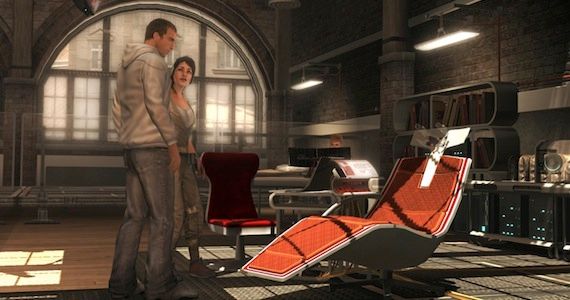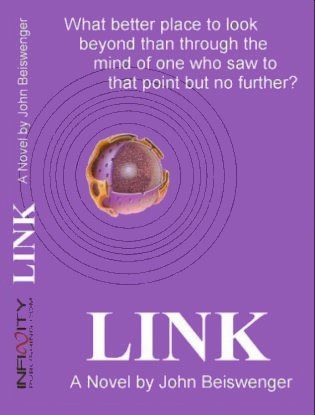Assassin's Creed is easily one of the most story-driven game series in the current market. Second only to decision-heavy franchises like Mass Effect or especially character-driven experiences like Heavy Rain, Assassin's Creed - with its Lost-like overarching narrative (full of mystery and veiled moral gray areas) - has delivered some genuinely shocking twists and turns as well as captivating moment to moment historical drama.
Of course, the success of that core storytelling is due largely to the game's basic, albeit brilliant, premise - a modern assassin who is able to glean information (training, experiences, secret locations) from ancestral memories trapped in his DNA. It's a smart set-up but what if Ubisoft ripped-off the idea from someone else?
Even at the time of the original Assassin's Creed, which many players and reviewers alike criticized for being more of a proof of concept than a fully-formed game experience, the story of Desmond Miles (as well as the larger assassin versus templar conflict) was easily one of the most intriguing aspects of the title. As a result, despite plenty of uninspired side-missions and lousy fast-travel mechanics, it was crystal clear that Ubisoft was on to something really exciting with the fledgling series.
Now one man is claiming that many of the elements in the blockbuster franchise were lifted from his work - which predates the first Assassin's Creed title.
Back in 2003, author John Beiswenger, published the novel Link - which features, among other similarities (such as historical and religious references), an Animus-like device as well as Abstergo-like lab.
From the official complaint (which you can read in full - HERE):
23. In Link, the Plaintiff’s plot includes the conception and creation of a device and process whereby ancestral memories can be accessed, recalled, relived, and re-experienced by the user.
In addition, the lawsuit also highlights the following description of the Animus-like invention itself, here called the Link device:
Allen picked up an assembly from the small table behind the revised dentist chair now used during the Link experiments. The video monitor was now on gimbals, hanging from the ceiling so that it could be comfortably positioned in front of the test subject and yet viewed easily by those monitoring the test. “We place this device around Anna’s biceps, just above the joint. As you can see, it looks very much like a blood-pressure cuff, except that facing the meaty part of her arm is this one-inch diameter, donut-shaped ring,” Allen continued. “In the ring we have incorporated all of the sensors we had in the hand-gripped Link.” Allen picked up a bundled cable, with an overall diameter of about three-fourths of an inch, including a high- pressure hose, two twisted pairs of wires and a thin, white, coaxial cable.
Beiswenger's lawsuit also makes mention of "assassins and assassinations" in Link; though, the selected quotes in the complaint are presented as potential uses of the Link device - not central to the overarching plot:
"If John Wilkes Booth fathered a child after he assassinated Lincoln, and we found a descendant alive today, we could place Booth at the scene and perhaps smell the gunpowder.” “Ancestral memories?” “As far back as you want."
Some of the complaints come across as a bit of a stretch, though the similarities in the central concepts - about machines that allow people to relive ancestral memories - are hard to entirely dismiss. As a result, will the courts stick it to Ubisoft?
Anything is possible but, despite having the same basic sci-fi concept, there aren't a lot of direct correlations between the Assassin's Creed series and Beiswenger's novel (at least judging by the court documents provided). While the Animus/Link technology offers a smart storytelling/gameplay concept (and a compelling foundation for a lawsuit), it's not an entirely unique idea, meaning it's very possible that the two creators actually came up with the same idea separately. That said, it's up to the legal system, not us, to make a decision about whether these similarities are extensive enough to say Ubisoft infringed on Beiswenger's copyrights.
The next installment in Ubisoft's Assassin’s Creed series, Assassin's Creed 3 releases on October 30, 2012, for the PlayStation 3, Xbox 360, and PC.
-
Follow me on Twitter @benkendrick for further updates on the Assassin's Creed series as well as other movie, TV, and gaming news.
Source: Banner and Witcoff [via Kotaku]


